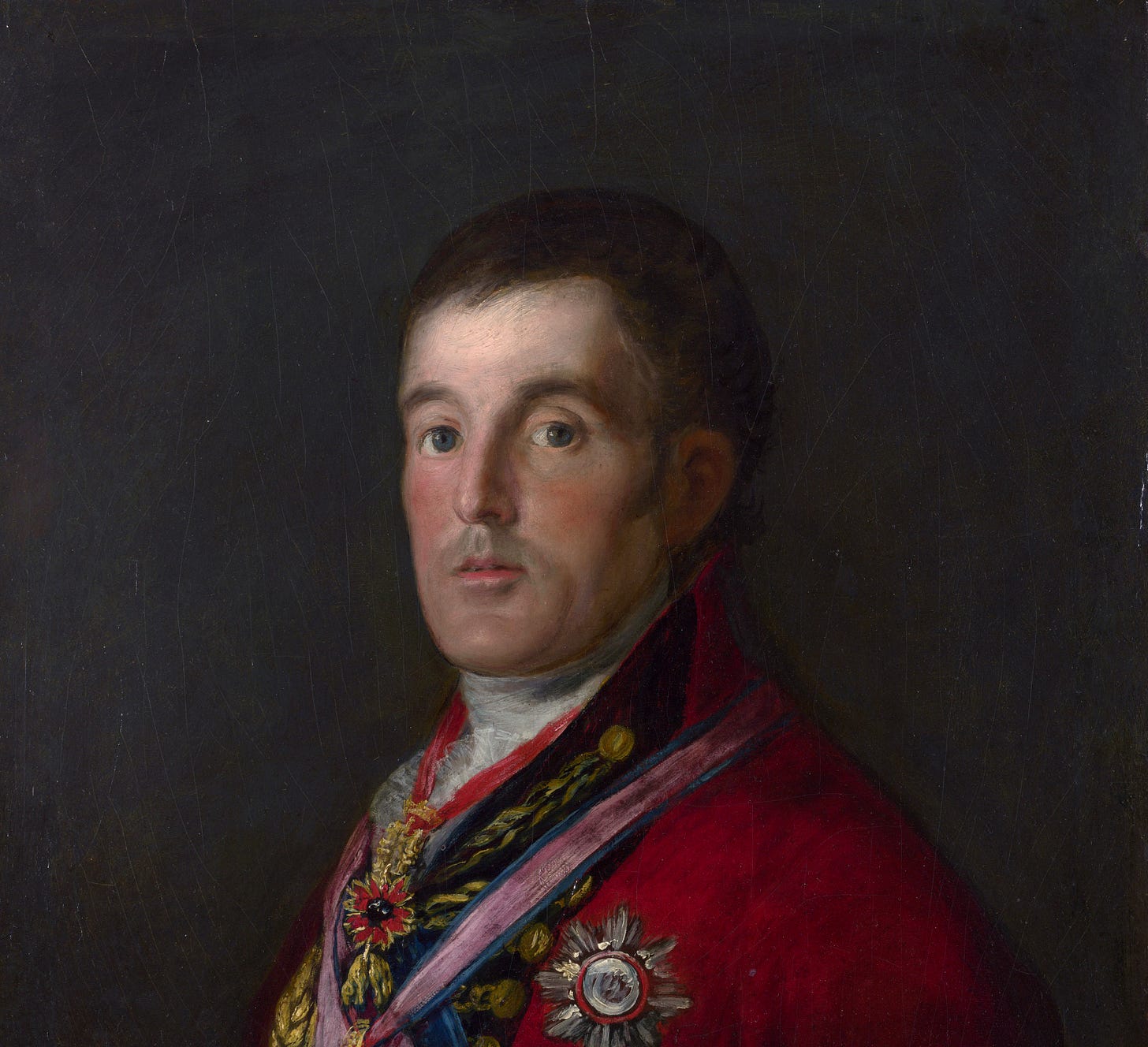The Battle for Britishness
The case for nuance
‘Being born in a stable does not make a man a horse’. This line, often incorrectly attributed to the Duke of Wellington about his sense of Irishness, was most likely said about Wellington by ‘the great liberator’ Daniel O’Connell. O’Connell, widely considered the leader of Ireland’s Catholic majority, was on trial for conspiracy at the time when he made the quip about Arthur Wellesley.
Wellington, while indeed born in Ireland, was ancestrally English, the Wellesley family having originated in Rutland before settling in the 16th century; this wave of Protestant migrants were known as the New English, to distinguish them from the Old English, the earlier Anglo-Norman arrivals who had largely remained Catholic and so dissolved into the wider Irish population.
The duke had led the British Army at Waterloo and later became the British Prime Minister. He had opposed Catholic emancipation before changing his mind, partly for pragmatic reasons, in particular the growing agitation of the Catholic majority. Was he as Irish as O’Connell, whose ancestors had inhabited the island for millennia and who was raised speaking Irish as his first language?
The issue wasn’t clear-cut; most Irish Protestants were loyal to Britain to a certain degree and they comprised a third of the British Army officer corps on the eve of the First World War. At the same time, many of the leading Irish patriots, both of the revolutionary and constitutional kind, were Protestants of British ancestry.
National identity is complicated, although contrary to what many people who have dipped their toes into intellectual discussions believe, it is not really invented as such. Some identities are ancient, and a recognisable English national community already existed by the time that Athelstan united the kingdom in 927AD. British national identity, centred on a common Protestant faith, built on that foundation, making the distinction between British and English vague. Because of Britain’s ancient institutions, its absence of borderlands – borderlands create ethnic ambiguity – and its historically very low levels of immigration, it didn’t have to think much about Britishness, and what made it.
Traditionally there have been two definitions of nationality, jus soil (right of the soil) and jus sanguinis (right of blood). France based nationality on the former, and Germany on the latter, although as Christopher Caldwell noted, this wasn’t due to a sense of racial purity but a result of the German lands being fractured into hundreds of statelets. The British never really thought about the issue much, because the sea answered the question for them. What was an Englishman? It was kind of obvious.
Today it is far from obvious, and has become yet another issue that taxes the collective minds of the country’s intelligentsia. It is, like so many issues, subject to consensus enforcement, with public figures who veer outside of the accepted definitions publicly disciplined and brought back into line.
It was with this in mind that the Guardian recently took umbrage at Matt Goodwin’s comments about the Britishness of certain terrorists and killers. Goodwin had observed that ‘migrants do not instantly adopt the host country’s “British” or “English” culture and identity the moment they sign a few papers.’ When it was pointed out that the alleged Huntingdon train attacker was born in Britain, Goodwin replied: ‘So were all of the 7/7 bombers. It takes more than a piece of paper to make somebody “British”.’ (Goodwin has since responded).
If this seems like a strange hill to fight on, then I can see why. If July 7 ringleader Mohammad Sidique Khan was not British, then perhaps the legitimacy of all second-generation Pakistanis to truly be British might be questioned. In this case, however, one might want to listen to Khan’s own words – respect his ‘lived experience’ in modern parlance – to see that the issue is more complicated. In his martyrdom video the Yorkshire-born suicide bomber said that: ‘Our religion is Islam - obedience to the one true God, Allah, and following the footsteps of the final prophet and messenger Muhammad... This is how our ethical stances are dictated…. Your democratically elected governments continuously perpetuate atrocities against my people all over the world.
‘And your support of them makes you directly responsible, just as I am directly responsible for protecting and avenging my Muslim brothers and sisters. Until we feel security, you will be our targets. And until you stop the bombing, gassing, imprisonment and torture of my people we will not stop this fight. We are at war and I am a soldier. Now you too will taste the reality of this situation.’
We and our refer to Muslims, you to the British people he attacked. The absurd horror of the July 7 martyrdom videos was heightened by the Yorkshire accents of those making the address: here were people fighting for a cause so utterly alien and yet who might have sounded like Alan Bennett or Sean Bean. Whether you see him as suffering from some form of false consciousness, Khan certainly did not see himself as British in the same way that, say, Matt Goodwin does.



